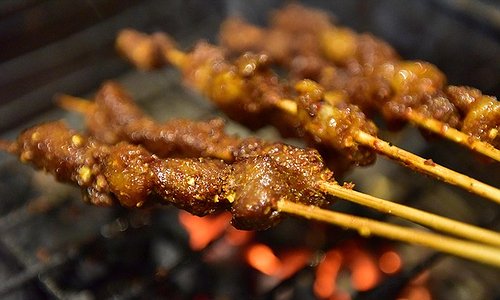Policy shifts squeeze agri-exports, challenging South African farmers
The significance of agricultural exports
Agriculture plays a pivotal role in South Africa's economy, with approximately half of its agricultural produce, by value, destined for international markets. In 2024, the country's agricultural exports reached a record high of US$13.7 billion, marking a 3% increase from the previous year. The primary export destinations include Africa (44%), Asia and the Middle East (21%), the European Union (19%), and the Americas (6%). Key exported commodities encompass citrus fruits, nuts, maize, apples, pears, wine, and sugar.
Global trade tensions and protectionism
The resurgence of protectionist policies globally poses major challenges to South Africa's agricultural exports. Notably, the United States has adopted measures that could adversely affect South African produce. The potential revocation of the African Growth and Opportunity Act (AGOA), which grants tariff-free quotas for South African agricultural exports, is a pressing concern. AGOA accounts for approximately a quarter of South Africa's $15 billion annual trade with the U.S., benefiting sectors such as wine, citrus, soybeans, sugar cane, and beef. The termination of AGOA could compel these sectors, particularly citrus and wine, to seek alternative markets, disrupting established trade relationships.
Elsewhere, the European Union has exhibited tendencies towards increased non-tariff barriers, influenced by domestic agricultural interests advocating for import restrictions. Such measures could impede South African exports, particularly citrus products, which have previously faced challenges in the EU market.
Diversification of export markets
In response to these challenges, South Africa has prioritized diversifying its export markets to reduce dependency on traditional partners and mitigate risks associated with protectionist policies. Recent efforts include securing access to the Philippines for fresh table grapes, a negotiation that spanned a decade. This development is anticipated to bolster the table grape industry, which exported 63 million cartons during the 2022/23 season, providing employment to approximately 86,870 seasonal workers and 14,843 permanent employees.
South Africa has also been exploring opportunities within the expanded BRICS alliance, focusing on countries like China, India, Saudi Arabia, and Egypt. These markets present substantial potential for South African agricultural products, offering avenues to offset potential losses in traditional markets.
Domestic policy adjustments
Domestically, South Africa has been proactive in adjusting its agricultural policies to boost its competitiveness and compliance with international standards. The government continues to prioritize the diversification of export markets for South African agricultural produce. The sector is heavily reliant on exports, with half (by value) of agriproduce being exported. Our largest export markets are Africa (40%), the Middle East and Asia (23%), the European Union (EU) (19%) and the United Kingdom (UK) (7%).
Outlook for South African farmers
The confluence of global trade tensions, protectionist policies, and domestic policy shifts presents both challenges and opportunities for South African farmers. While traditional markets may impose new barriers, the proactive pursuit of diversified markets and compliance with international standards position the agricultural sector to adapt and thrive. The continued collaboration between government entities and industry stakeholders alongside international partners will be crucial in surviving this new world and securing the sustained growth of South Africa's agri-exports.




